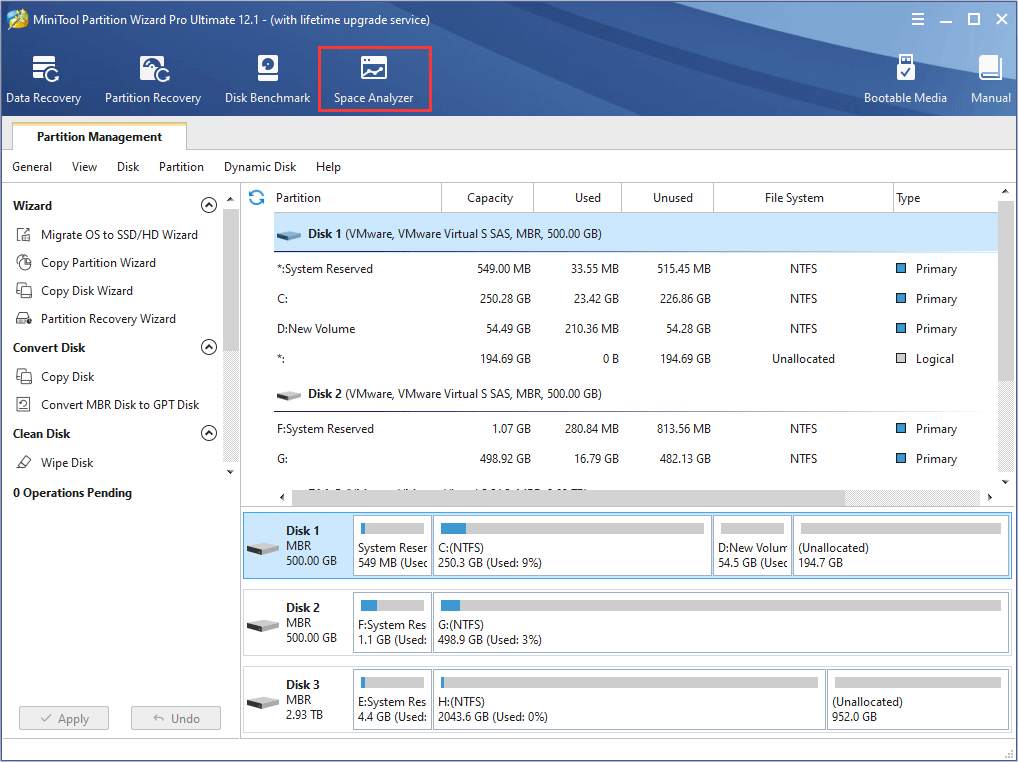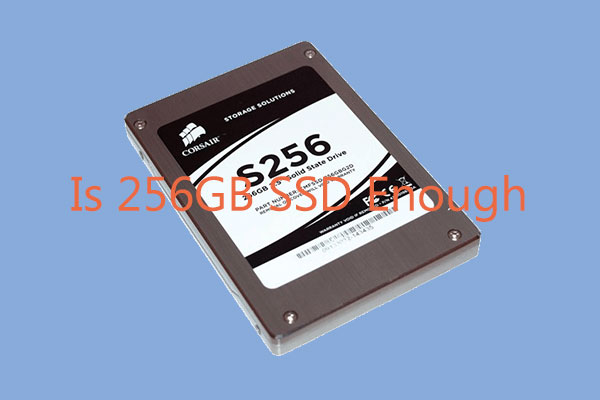Yes, a 256GB SSD can be enough for everyday use and basic tasks. For most users, it offers adequate storage capacity.
When considering storage needs, you should factor in the type of files you frequently work with and how much space they require. Multimedia files like videos and high-resolution photos can quickly fill up space. However, if your usage primarily involves documents, web browsing, and light gaming, a 256GB SSD can be sufficient.
It is essential to assess your storage requirements before making a decision to ensure it meets your needs adequately. By understanding your usage patterns, you can determine if a 256GB SSD provides enough storage for your day-to-day activities.
Advantages Of Ssd Over Hdd
An SSD, or solid-state drive, offers several advantages over a traditional HDD, or hard disk drive. From faster boot and load times to enhanced durability and reliability, the benefits of an SSD make it an appealing option for modern computer users.
Faster Boot And Load Times
SSDs are significantly faster than HDDs in terms of booting up the system and loading applications. This means that users can get to work or play more quickly, without having to endure long wait times.
Improved System Responsiveness
SSDs enhance system responsiveness by offering faster read and write speeds, ensuring that tasks are completed swiftly and smoothly. This can lead to a more seamless and enjoyable user experience.
Enhanced Durability And Reliability
SSDs are more durable and reliable than HDDs, as they lack moving parts that are prone to damage. This means that SSDs are less susceptible to physical shock and are more likely to maintain data integrity over time.
Noise And Vibration Reduction
SSDs operate silently and are free from the vibrations that are characteristic of HDDs. This results in a quieter and more peaceful computing environment, making SSDs an attractive choice for those who value a peaceful workspace.
Lower Power Consumption
SSDs consume less power than HDDs, which not only saves energy but also contributes to a longer battery life for laptops and other portable devices. This means that users can enjoy extended usage without constantly needing to recharge their devices.
Credit: medium.com
Storage Requirements For Different Users
For some users, a 256GB SSD may provide adequate storage. However, power users or those who need to store large files may find it insufficient. It’s important to assess your storage needs and usage to determine if a 256GB SSD is enough for you.
Casual users typically use basic applications for personal tasks.casual Users
– Prefer music and photo storage – 256GB SSD is generally adequate for casual use Gamers require ample storage for large game files.gamers
– Need high capacity SSD for multiple games – Invest in at least 512GB SSD for sufficient storage Content creators deal with heavy media files, requiring significant storage.content Creators
– Favor high-performance 1TB SSD for efficient workflow – Enhance productivity with spacious storage Professionals handle demanding applications and data-heavy projects.professionals
Factors To Consider When Choosing Ssd Capacity
When selecting an SSD for your storage needs, various factors need consideration to determine if 256GB SSD is sufficient for your requirements.
Usage Patterns
Determine your usage frequency to choose an appropriate capacity. Regular large file transfers may require higher capacity.
Operating System And Software Requirements
Consider the size of the OS and software for installation. Ensure enough space for updates and new installations.
Multitasking Needs
For multitasking, opt for a larger capacity to accommodate simultaneous program operations effectively.
Data Storage Plans
Plan for future data storage needs. Estimate growth and allocate space accordingly for upcoming files.
How Much Storage Do Common Applications And Files Require?
How much storage do common applications and files require?
Operating Systems
An operating system typically requires 20-40GB of space, with Windows 10 taking up around 15-20GB and macOS Catalina needing approximately 12-18GB. Linux distributions generally need 8-16GB of space.
Office Suites
A standard office suite such as Microsoft Office or LibreOffice usually requires 3-6GB of space when fully installed. However, individual applications like Word or Excel might only consume 1-2GB each.
Media Files
Media files, including photos, music, and videos, can quickly accumulate storage space. For instance, a collection of 1,000 photos in high resolution may consume 5-10GB, while a typical music library of 1,000 songs might occupy 3-5GB. As for videos, a single 1080p movie could utilize 1-2GB, while a 4K movie can take up 10-15GB.
Games
Modern games are notorious for their large storage requirements. A small indie game could need 2-5GB, while larger AAA titles can demand 50GB or more, with some reaching 100GB.
Benefits Of A Larger Ssd
Experience faster performance and improved efficiency with a larger SSD capacity than the 256GB option. With more storage space, you can store more files, install additional programs, and enjoy quicker system responsiveness, making it a worthwhile upgrade.
When it comes to storage options for your computer, a larger SSD (Solid State Drive) can bring a host of benefits. In this section, we will explore two key advantages of investing in a larger SSD: flexibility and future-proofing, as well as improved system performance. Moreover, a larger SSD can also reduce your need for external storage solutions. Let’s take a closer look at these benefits.Flexibility And Future-proofing
A larger SSD provides you with ample room to store all your files, applications, and multimedia content without worrying about running out of space. It offers greater flexibility in organizing your data and allows for smoother multitasking. Furthermore, by investing in a larger SSD now, you are future-proofing your system. As technology advances and software requirements increase, having a larger SSD ensures that you have the capacity to store and run cutting-edge applications and software updates in the years to come.Improved System Performance
Upgrading to a larger SSD can significantly enhance your system’s performance. With more storage space, the drive can access and retrieve data faster, resulting in quicker boot times, smoother application launches, and shorter file transfer durations. Additionally, a larger SSD can handle heavy workloads and resource-intensive tasks with ease, resulting in a more responsive and efficient computing experience. Say goodbye to frustrating loading times and lagging systems with the improved performance of a larger SSD.Reduced Need For External Storage
When you have a larger SSD, you can say goodbye to the hassle of relying on external storage solutions. With ample space available on your internal drive, you no longer need to carry around bulky external hard drives or constantly manage files across multiple devices. Whether you need to store personal documents, professional projects, or even your extensive media library, a larger SSD can accommodate it all, eliminating the need for additional storage devices and simplifying your digital life.In conclusion, upgrading to a larger SSD brings several benefits that enhance your overall computing experience. The flexibility and future-proofing it offers, the improved system performance it provides, and the reduced reliance on external storage solutions make it a worthy investment. With a larger SSD, you can enjoy a seamlessly efficient and clutter-free digital environment. So why settle for less when you can have more with a larger SSD?

Credit: www.youtube.com
Is 256gb Ssd Enough For The Average User?
Start of Is 256GB SSD Enough for the Average User?The storage capacity of a laptop or computer is an important consideration for many users. With the increasing amount of data we store, it’s crucial to have enough space to accommodate our files and applications. One common storage option is a solid-state drive (SSD), and many laptops now come with a 256GB SSD. But is this capacity enough for the average user? Let’s dive into the pros and cons of a 256GB SSD, as well as considerations for the average user.
Pros Of 256gb Ssd
A 256GB SSD offers several advantages that make it a popular choice for many users. Here are some of its pros:
- Fast Performance: SSDs are known for their fast read and write speeds, which can significantly improve your device’s overall performance.
- Compact and Lightweight: Compared to traditional hard drives, SSDs are smaller and lighter, making them ideal for portable devices like laptops.
- No Moving Parts: Since SSDs don’t have any moving parts, they are less prone to physical damage from drops or bumps, providing added durability.
Cons Of 256gb Ssd
While a 256GB SSD has its advantages, there are also some drawbacks you should consider:
- Storage Space Limitation: The most obvious limitation of a 256GB SSD is its storage capacity. It may not be sufficient for users who deal with large files, such as photographers, videographers, or gamers.
- Higher Cost per Gigabyte: SSDs tend to be more expensive than traditional hard drives, and the cost per gigabyte is generally higher for larger capacities. If you need more storage, you may have to spend more money.
Considerations For The Average User
For the average user, the decision to go with a 256GB SSD depends on their specific needs and usage habits. Here are a few considerations to keep in mind:
- File Storage Needs: Evaluate your file storage needs by gauging the size of the files you typically work with. If you mainly deal with documents, images, or small applications, a 256GB SSD may be more than enough.
- Cloud Storage or External Drives: If you require additional storage, consider utilizing cloud storage services or external hard drives to store files that you don’t frequently access. This way, you can have the benefits of a fast SSD for your main files while keeping larger or less-used files elsewhere.
- Future Expansion: Think about your future storage requirements. If you anticipate needing more storage in the near future, it might be worth investing in a higher-capacity SSD right from the start.
In conclusion, a 256GB SSD can be sufficient for the average user, depending on their specific needs. It offers fast performance, portability, and durability. However, it’s essential to consider the limitations in terms of storage space and cost per gigabyte. By carefully assessing your file storage needs and future expansion plans, you can make an informed decision about whether a 256GB SSD is enough for you.
End of Is 256GB SSD Enough for the Average User?
Credit: www.partitionwizard.com
Frequently Asked Questions For Is 256gb Ssd Enough
Is 256gb Ssd Enough For Gaming?
Yes, a 256GB SSD can be sufficient for gaming depending on the number and size of games you install. It can hold a few AAA games and their associated files, but you may need to be mindful of storage space and delete games you’re not actively playing to make room for new ones.
Can A 256gb Ssd Hold My Operating System?
Absolutely. A 256GB SSD is more than enough to store an operating system like Windows or macOS. In fact, it will provide fast boot times and overall snappy performance. You can also install a few frequently used applications alongside the operating system for a seamless experience.
Is 256gb Ssd Enough For Multimedia Storage?
While a 256GB SSD can hold a decent amount of multimedia files like photos, music, and documents, it may fill up quickly if you have a large collection. It’s recommended to utilize external storage options or cloud services for storing larger multimedia libraries to ensure you have enough space on your SSD for essential files and applications.
Conclusion
In the end, the decision about whether 256GB SSD is enough for you depends on your individual needs and usage. Consider factors like file size, operating system, and budget when making your decision. Remember, you can always supplement with external storage if needed.
Ultimately, it’s about finding the balance that works for you.


0 comments